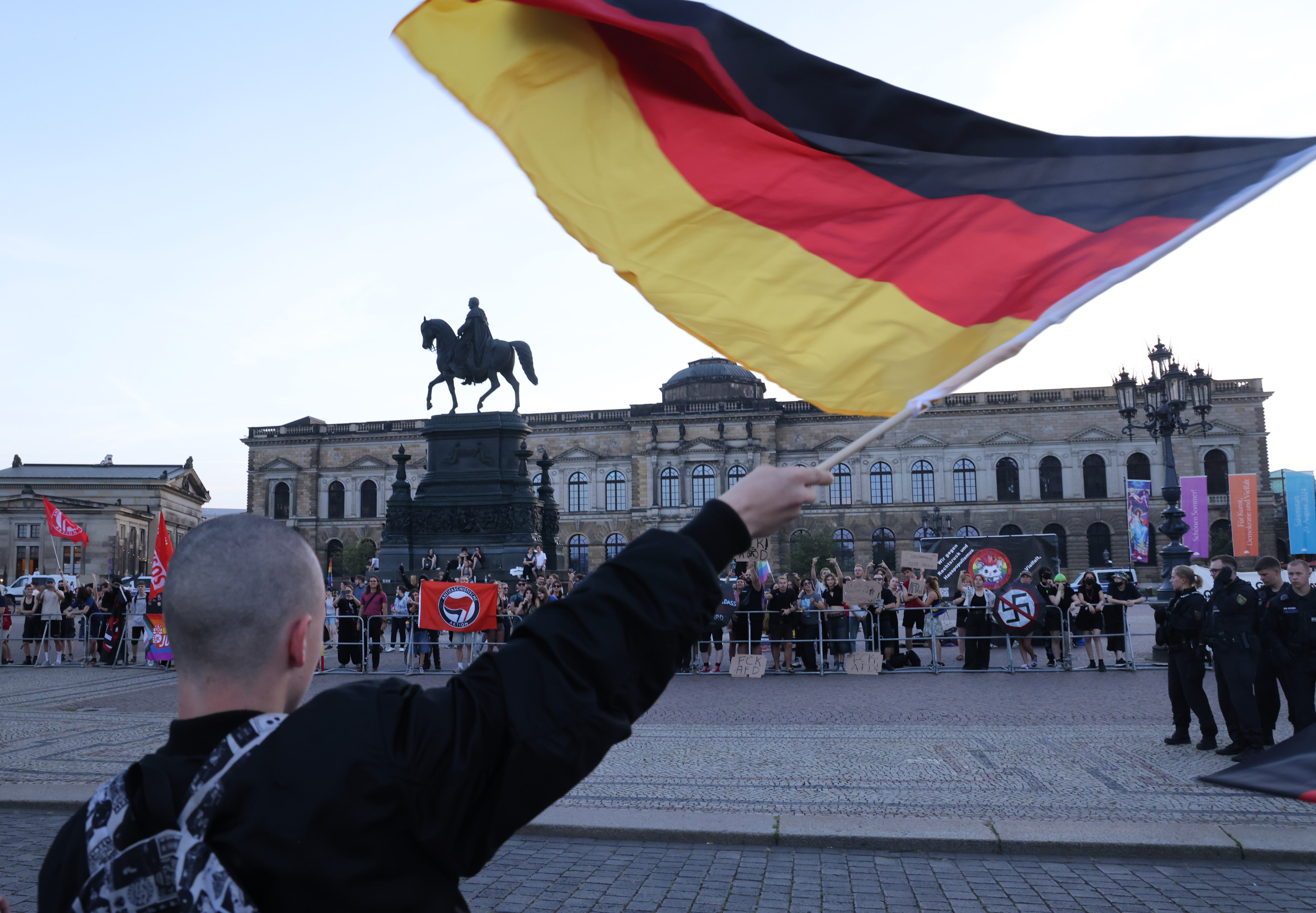The success of Alternative für Deutschland (AfD) in two state ballots in Germany follows rhetoric that included opposing Berlin’s support for Ukraine, delivering a concerning message for Kyiv, a year out from a federal election.
After Sunday’s vote, the AfD became the first far right party to win a state legislature election in Germany since the World War II, garnering 32.8 per cent of the vote ahead of the 23.6 percent of the mainstream Christian Democrats (CDU).
In the neighboring Saxony region, the AfD came a close second with 30.6 percent. Another anti-establishment party, the left-nationalist BSW (Sahra Wagenknecht Alliance) secured 11.8 percent of the vote in Saxony and 15.8 percent in Thuringia.
The AfD and BSW are both critical of Berlin supplying weapons to Kyiv and Western sanctions against Russia, and have called for negotiations to end the war in Ukraine.
Sean Gallup/Getty Images
Wagenknecht, a former communist seen by many as an apologist for Putin, has made changing Germany’s policy on Ukraine a precondition for any talks with Germany’s ruling coalition.
Carsten Nickel, from corporate consulting, strategy and advisory firm Teneo, said in a note that voters had “vented their anger” at the coalition’s infighting within the context of conflicts over migration “and major challenges associated with the Russian invasion of Ukraine,” CNBC reported.
Gustav Gressel, senior policy fellow at the European Council on Foreign Relations (ECFR) told Newsweek that while state ballots do not shape foreign policy, the infighting among Germany’s coalition has already led to a reduction in Berlin’s assistance to Ukraine.
A draft budget approved by the government in June, shows that Germany, which is Ukraine’s second-biggest contributor, is planning to cut military aid for Kyiv next year.
“It will be halved to €4 billion ($4.43 bn) next year and then is supposed to end entirely, or be resurrected by the next government,” Gressel said, adding that €5 billion ($5.53 billion) of next year’s €4 billion has already been spent. “So, effectively whatever contracts there are, they will be fulfilled, but then it’s over for this government.”
Sunday’s elections have delivered a blow to German Chancellor Olaf Scholz’s coalition of Social Democrats (SPD), the Free Democratic Party (FDP) and Alliance 90/The Greens.
However, the AfD will not be able to form a government, since no other party will cooperate with it to form the parliamentary majority required to rule. Scholz has called on mainstream parties not to lend support to the far right party.
Forming a government in Thuringia is likely to deepen the CDU’s divisions between “culture warriors” and centrists, Gressel said and will decide how the party will campaign in 2025, and who will be their prime coalition partner.
“The culture warriors look at a wounded SPD as an easy pick. However, that wounded SPD then may well [adopt] the anti-Ukraine, anti-rearmament, anti-American position as opposition in government to regain voters from the BSW and AfD.”
The issue of Ukraine is likely to remain a key one for voters in the year leading up to Germany’s national elections in 2025.
“Centrists would prefer the Greens over the SPD, which would—at least on Ukraine—spell a different policy,” he added.
Newsweek has contacted the Ukrainian foreign ministry for comment.
